In a time with great political and social division, admist world-wide increased Islamophobia and anti-Muslim hatred, faith promises to lead us to something greater than ourselves. Faith binds people together; in it, one is never alone. For Gulshan Khan, faith materialises in community and practice in her personal photographic series The Things We Carry With Us.
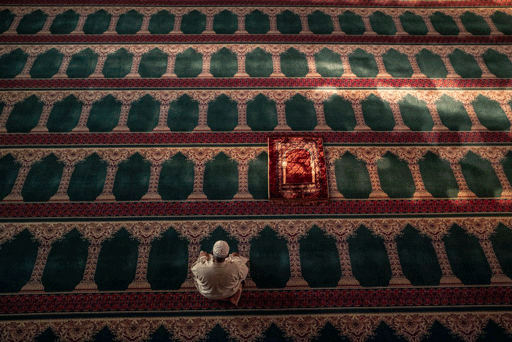
Khan is a young and established South African photographer, currently based in Johannesburg. Her career began with photographing the student protests of the #RhodesMustFall Movement in 2015, a movement that aimed to decolonise education and institutional imagery of colonisation and apartheid.
The series The Things We Carry With Us turns towards Khan’s own heritage, unveiling the lives of Muslims in South Africa. Each photograph captures the contemporary Muslim community in all its diversity and complexity. Each is an intimate look into the lives of the many Muslims in South Africa.
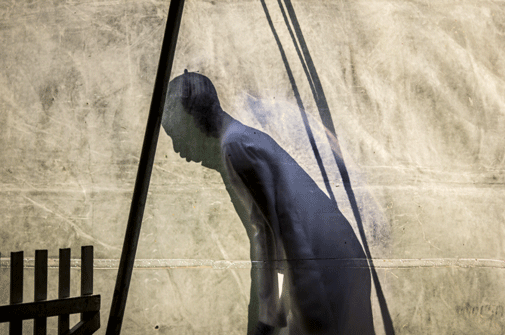
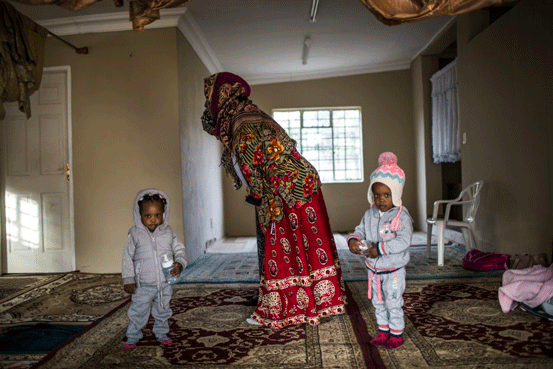
Khan couples the photographs with text, deliberating on them and the context in which they arise. In one photograph, she snaps a shot of a young man bent in prayer on Eid-al-Adha, his silhouette pressed against the tarp. Light moves through the frame; shadow merges with form. In her caption, she describes family prayers on Eid and how it is still largely reserved for men.
In another image, two toddlers, Khalila and Raheema, look towards the camera as their mother and her friend salaah behind them, offering a background on their practice of Tijana, a branch of Sufism. With regards to both images, Khan takes special care in documenting Black Muslims, lower-class Muslims and Muslim women — all groups that remain underrepresented in both historical and contemporary images.
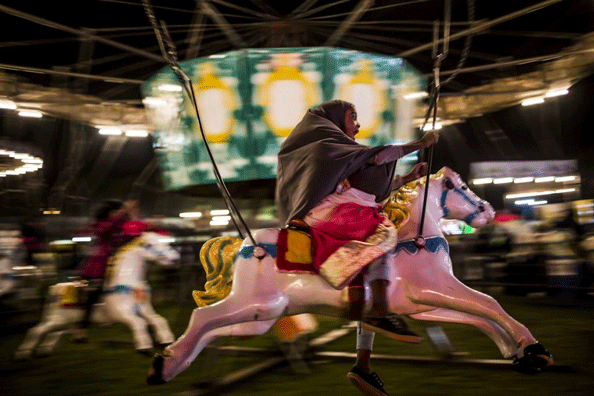
The Iziko South African National Gallery and Museum procured many photographs from Khan’s collection for the national archive. The archive, as a noun and verb, is defined by Verne Harris as a recording on or within a surface, with a quality of exteriority, that must be worthy of protection, classification and preservation.
The archive, through images, artefacts and symbols, defines what we think we were and hence what we might become.
The archive decides what is remembered, what and who is protected, how it is framed, who has access and to whom it belongs. The archive, masquerading as a neutral tool of white imperialism, therefore encompasses inherent violence in that it decides what to remember and what to forget.
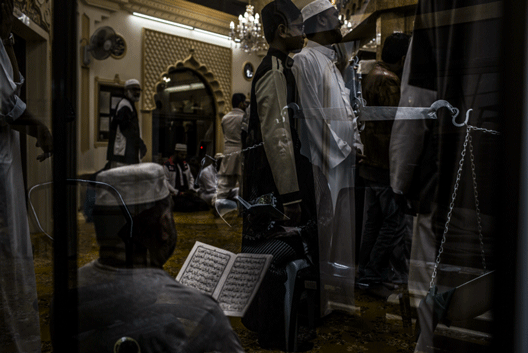
Khan softens the harsh nature of the archives with an awareness of its inherent bias. She shepherds in those neglected by the dominant narrative; she gives figure to form. Khan chooses to occupy a traditionally white, male and Christian space and allows South African Muslims to see themselves as they are — alive and worthy of remembrance.
In relationship with this, Khan embodies the United Nations Sustainable Development Goals for Reduced Inequalities and Peace, Justice and Strong Institutions.
She builds on a history and presence untold. The photographs illuminate South African Islam with care, observing its long history of colonisation, apartheid and migration through the multiplicity of Islamic identity. Amidst both forced and voluntary migrations, faith builds a new home on South African soil.
“Faith is something we carry with us, even when we cannot carry anything else,” explains Khan.
Khan meditates on the intangible forces that bind communities together, beyond race, gender, class and nationality. She pays attention to the intricacies and intimacies of joy, longing and prayer. The archive opens out to the future; and Khan gives her images to it as a prayer for one that is brighter, kinder and fervently decolonial.
Find more of Khan’s work here.
